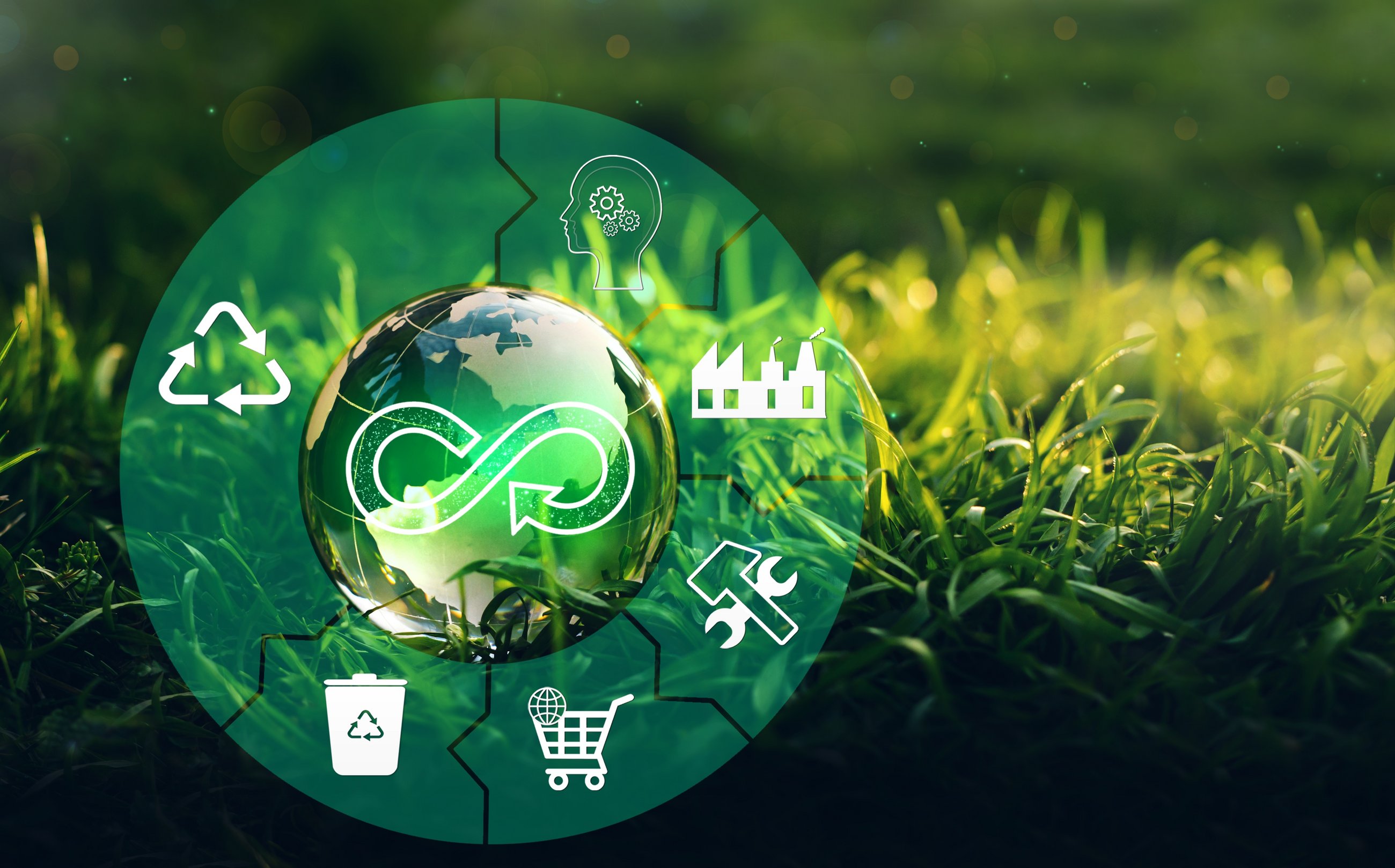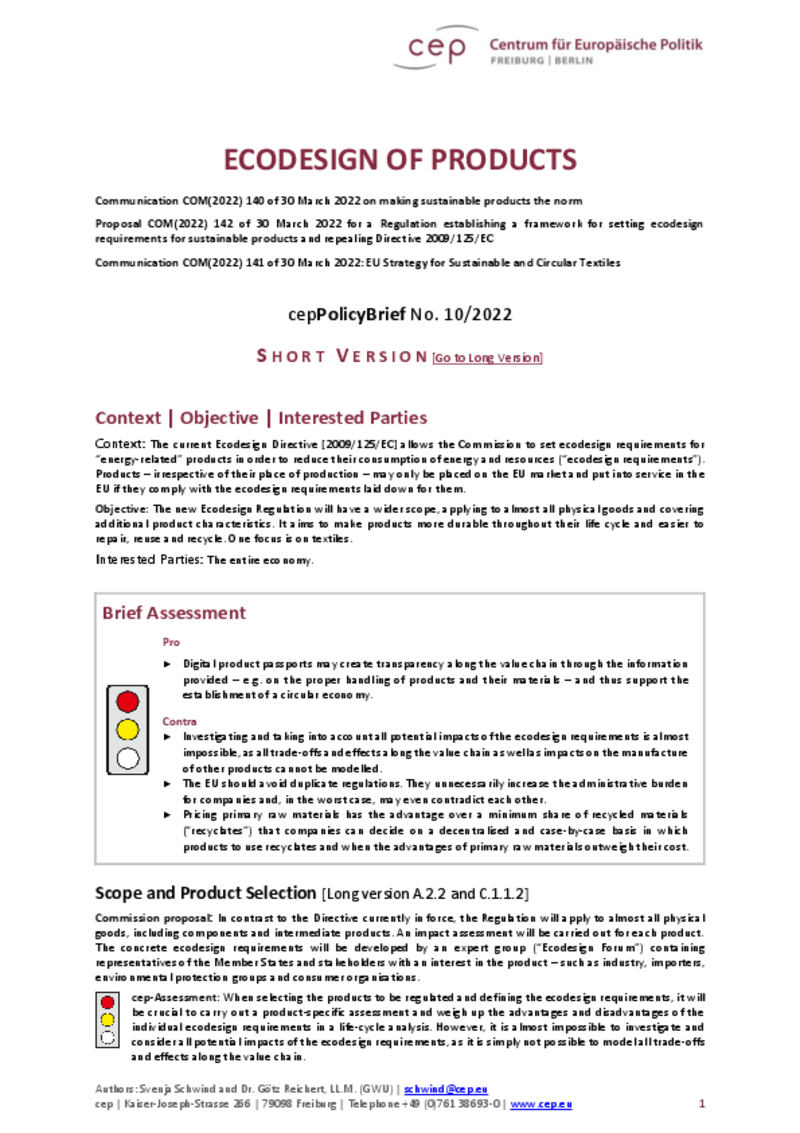
Environment
Ecodesign for Products (cepPolicyBrief COM(2022) 140)
cepPolicyBrief
Until now, only energy-related products such as light bulbs and windows have been regulated, whereas the new Ecodesign Regulation is to cover almost all products and allow EU specifications for further product characteristics. Based on an impact assessment, the Commission will be allowed to set ecodesign requirements to make products more durable, easier to repair and reuse, and more recyclable.
"Weighing up the advantages and disadvantages of individual ecodesign requirements is indeed essential. However, given the abundance of factors relevant in this respect, it is hardly possible to consider all potential impacts along the value chain as well as on the manufacture of other products," criticises cep environmental expert Svenja Schwind, who analysed the proposed regulation together with Götz Reichert. "The Commission risks that thereby different sustainability objectives conflict with each other," emphasises cep expert Götz Reichert.
The proposed regulation also includes a mandatory minimum content of recycled materials in products. However, the secondary raw materials recycled from waste are often very expensive - for example in the case of plastics. Schwind emphasises: "Instead, it would be better to introduce a pricing of primary raw materials. That would have the advantage that companies can decide on a decentralised and case-by-case basis for which products they use recycled materials and when the advantages of primary raw materials outweigh their costs."
In addition, consumers, repair companies and recyclers should be able to access information about a product through a digital product passport. "This could create transparency along the value chain. However, it must be ensured that the information provided is not too complicated and complex in order for consumers and companies to actually use it," Reichert demands.





